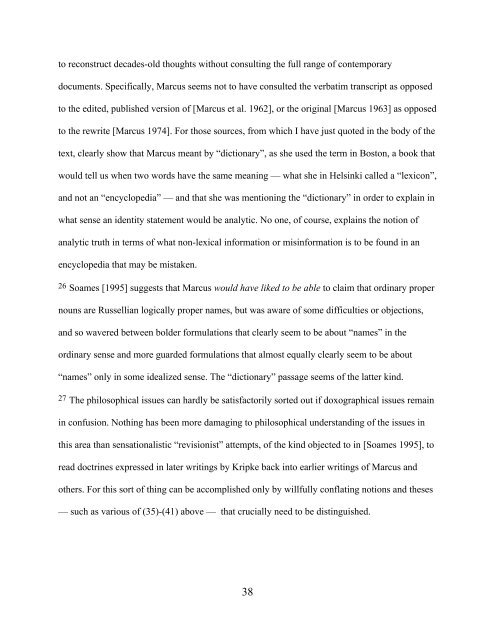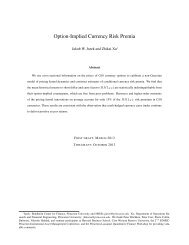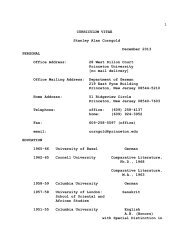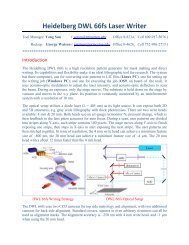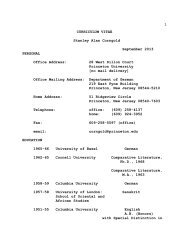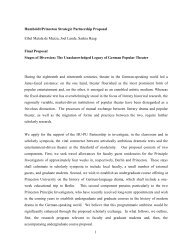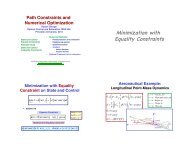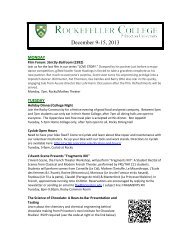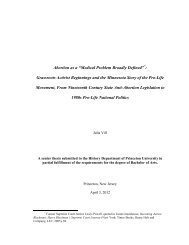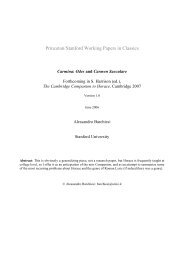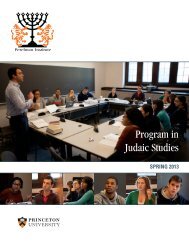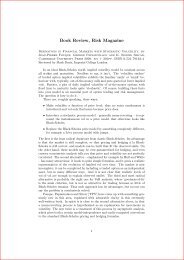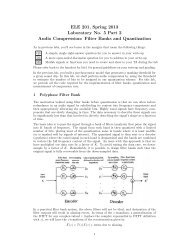On a Derivation of the Necessity of Identity - Princeton University
On a Derivation of the Necessity of Identity - Princeton University
On a Derivation of the Necessity of Identity - Princeton University
Create successful ePaper yourself
Turn your PDF publications into a flip-book with our unique Google optimized e-Paper software.
to reconstruct decades-old thoughts without consulting <strong>the</strong> full range <strong>of</strong> contemporary<br />
documents. Specifically, Marcus seems not to have consulted <strong>the</strong> verbatim transcript as opposed<br />
to <strong>the</strong> edited, published version <strong>of</strong> [Marcus et al. 1962], or <strong>the</strong> original [Marcus 1963] as opposed<br />
to <strong>the</strong> rewrite [Marcus 1974]. For those sources, from which I have just quoted in <strong>the</strong> body <strong>of</strong> <strong>the</strong><br />
text, clearly show that Marcus meant by “dictionary”, as she used <strong>the</strong> term in Boston, a book that<br />
would tell us when two words have <strong>the</strong> same meaning — what she in Helsinki called a “lexicon”,<br />
and not an “encyclopedia” — and that she was mentioning <strong>the</strong> “dictionary” in order to explain in<br />
what sense an identity statement would be analytic. No one, <strong>of</strong> course, explains <strong>the</strong> notion <strong>of</strong><br />
analytic truth in terms <strong>of</strong> what non-lexical information or misinformation is to be found in an<br />
encyclopedia that may be mistaken.<br />
26 Soames [1995] suggests that Marcus would have liked to be able to claim that ordinary proper<br />
nouns are Russellian logically proper names, but was aware <strong>of</strong> some difficulties or objections,<br />
and so wavered between bolder formulations that clearly seem to be about “names” in <strong>the</strong><br />
ordinary sense and more guarded formulations that almost equally clearly seem to be about<br />
“names” only in some idealized sense. The “dictionary” passage seems <strong>of</strong> <strong>the</strong> latter kind.<br />
27 The philosophical issues can hardly be satisfactorily sorted out if doxographical issues remain<br />
in confusion. Nothing has been more damaging to philosophical understanding <strong>of</strong> <strong>the</strong> issues in<br />
this area than sensationalistic “revisionist” attempts, <strong>of</strong> <strong>the</strong> kind objected to in [Soames 1995], to<br />
read doctrines expressed in later writings by Kripke back into earlier writings <strong>of</strong> Marcus and<br />
o<strong>the</strong>rs. For this sort <strong>of</strong> thing can be accomplished only by willfully conflating notions and <strong>the</strong>ses<br />
— such as various <strong>of</strong> (35)-(41) above — that crucially need to be distinguished.<br />
38


